LAB MEETINGS
With the 8th edition on 27 October 2001, we concluded our series of LAB meetings, that is, for now. The Heritage & Slow TourismLAB presented more than 20 speakers and panellists and attracted dozens of participants.
It was the founders/co-hosts Burçin Kalabay Hatipoğlu and Karin Elgin-Nijhuis’ wish to take time out to focus on research and explore new formats for sharing knowledge and experience. Since then, they have written a book chapter featuring the LAB and are working on a new publication about Slow.
Please find information about the topics and cases we discussed and the speakers, co-hosts and panellists we welcomed in the LAB below and in the resources section.
27 October 2021
Theme: Slow Art
Speakers:
Maggie Freeman
“Slow Art Day – History, Philosophy and Applications”
Armand Storck & colleagues
“Slow Art Day in Antwerp’s Saint Paul’s Church”
Host:
Karin Elgin-Nijhuis
Co-host/panelist:
Marc Kocken
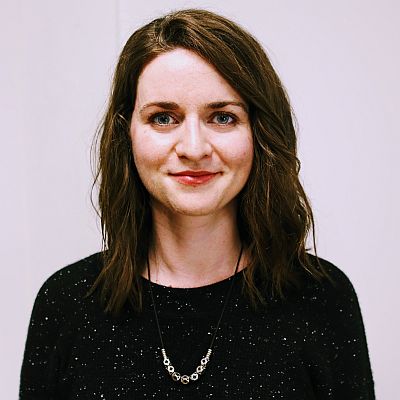
Maggie Freeman is an art historian and museum educator. Maggie has been the Global Coordinator for Slow Art Day since 2012. She has worked in education and public programs at the Oakland Museum of California, the Fine Arts Museums of San Francisco, the Asian Art Museum, and the Nantucket Historical Association, among others. She is currently a PhD student in History of Islamic Art and Architecture at the Massachusetts Institute of Technology.
[Posted 7 October 2021]
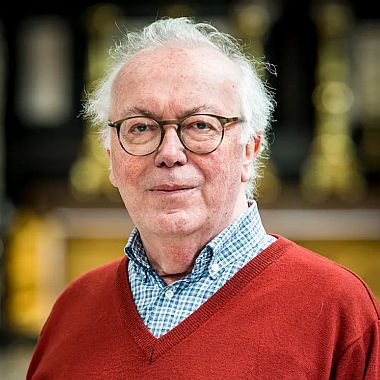
Armand Storck held various management positions at international logistics companies. Especially during the last 20 years of his career, he worked in China and Southeast Asia, where local colleagues and friends showed and explained their countries’ rich culture and history to him.
That interest came in handy when he started working as a volunteer with Saint Paul’s friends in 2015. Together with his colleagues, he welcomes the numerous visitors to the historical church, gives guided tours, is co-editor of the Facebook page, the monthly magazine “Paullus”, and the new website.
Armand likes to delve into the church’s archives to come up with forgotten documents. These shed light on the site’s rich history and the artists who worked there. Together with Caroline De Wever and Mia Dillen, he discovered a 19th century Stations of the Cross by De Boeck & Van Wint in England, similar to Saint Paul’s Church’s.
The discovery culminated in an ecumenical project and exhibition with the Holy Angels church in Hoar Cross in the UK. For this project, Saint Paul’s became a laureate of the Heritage Prize 2020 of the province of Antwerp.
[Posted 15 October 2021]
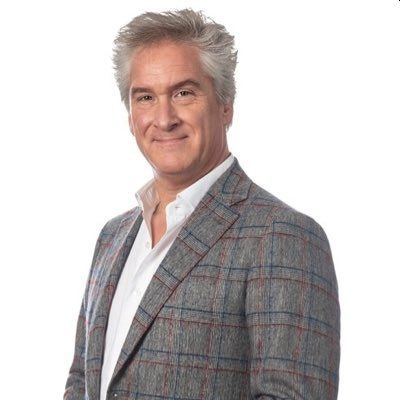
Marc Kocken is a Dutch heritage professional with 25 years of experience in all aspects of (archaeological) heritage management, policymaking, interpretation, heritage marketing, tourism and leisure. Motto: Making cultural heritage valuable, visible and usable.
In 2007 he founded MARC heritage consultants, a private heritage
consultation and interpretation firm. In 2016 and 2017, Marc worked as Project Manager Heritage Marketing for the Province of Drenthe. Since 2017 he has been head of sector Heritage & Community Engagement at Zeeland Heritage.
Zeeland Heritage aims to integrally promote the protection, exploitation and experience of the (in)tangible heritage of the Province of Zeeland.
Marc serves as treasurer for ICOMOS Netherlands, an expert member for the ICOMOS International Committee on Interpretation and Presentation of Cultural Heritage Sites (ICIP) and International Committee on Archaeological Heritage Management (ICAHM).
[Posted 15 October 2021]
9 June 2021
Theme: Ethical and Post-pandemic Perspectives of Tourism
Speakers:
Michael Clancy
“Slow Tourism as Ethical Tourism?
Origins and Future Prospects”
Paolo Corvo
“Slow Food in Slow Tourism:
Perspectives on Post-pandemic Tourism.”
Host:
Karin Elgin-Nijhuis
Co-host/panelist:
Javier Lizarzaburu
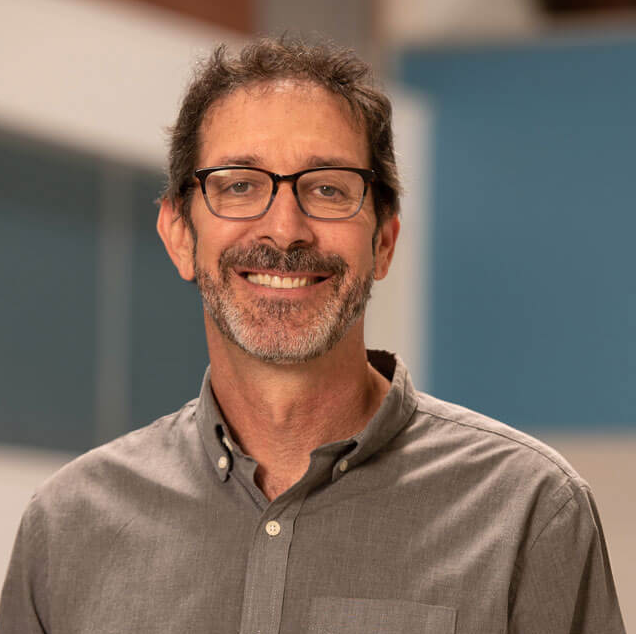
Michael Clancy is professor and chair of the Department of Politics, Economics, and International Studies at the University of Hartford, Connecticut, USA.
His research examines various aspects of the political economy of global tourism. He is the editor of Slow Tourism, Food and Cities: Pace and the Search for the ‘Good Life’ (Routledge, 2017).
In addition, he is the author of two earlier books on tourism and national development in Mexico and the Republic of Ireland, respectively. He has also researched and written on cruise tourism, sex tourism, tourism and ethics, and overtourism.
[Posted 30 March 2021]
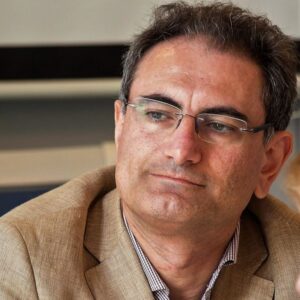
Paolo Corvo is associate professor of Sociology at the University of Gastronomic Sciences of Pollenzo, where he teaches Travel Cultures and Social Changes and New Trends of Gastronomy.
The fundamental lines of his research include the social aspects of food, the relationship between food and consumption, oeno-gastronomic sustainable tourism, indicators of quality of life, trends of wellness and happiness.
[Posted 30 March 2021]
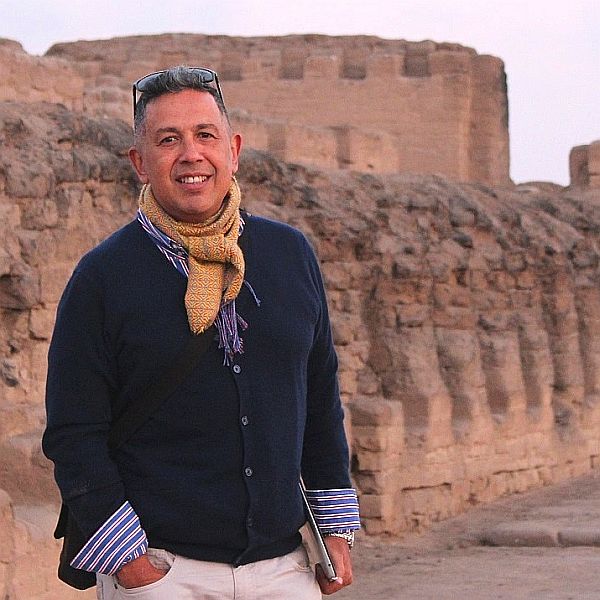
Javier Lizarzaburu is a communications and heritage specialist currently living in the Netherlands. He worked in London as a BBC Senior Producer before going back to his native Lima, Peru, in 2009. There he launched, among others, the Lima Milenaria campaign, positively reframing the local indigenous built heritage. In 2018, he was one of the curators of the Peruvian pavilion at the Venice Biennale.
Javier has a degree in Media Studies at the University of Lima, followed by post-graduate studies at the Autonomous University in Barcelona and King’s College, London. He is doing an MA in Heritage and Spatial Studies at the Vrije University, with courses at the University of Amsterdam and TUDelft, joining the two subjects that became his passion, heritage and inclusive cities.
[Posted 27 May 2021]
3 February 2021
Theme: Applying the Slow Philosophy
Speakers include:
Zanda Serdane
“Slow philosophy in destination marketing:
The case of ‘Latvia. Best enjoyed slowly’ tourism brand”
James Simpson
“Pilgrimage and long-distance hiking trails – the original slow tourism”
Hosts:
Burçin Kalabay Hatipoğlu
Karin Elgin-Nijhuis
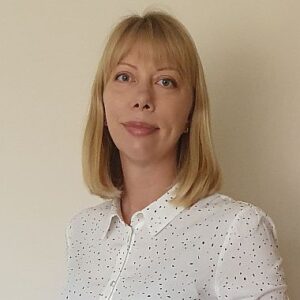
Zanda Serdane (PhD) is a lecturer in tourism, events and hospitality at Christ Church Business School, Canterbury Christ Church University in the United Kingdom.
She has designed and delivered tourism and marketing related modules at undergraduate and postgraduate level in the UK and Latvia for more than ten years.
She earned her PhD in 2017 from the University of Salford, United Kingdom, where she was a Graduate Teaching Assistant. Her PhD thesis was on the subject of slow tourism and its underlying philosophy. She has also published papers on this subject.
Her research interests include destination marketing and management, travel experiences, and tourism policy implementation.
Prior to her academic career, Zanda has worked in the hospitality industry for seven years managing a family-run holiday centre.
[Posted 7 January 2021]
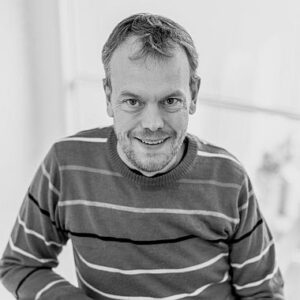
James Simpson (MA) is project manager for St. Olav Waterway, a pilgrimage route in the Finnish archipelago and Åland Islands and part of St. Olav Ways, a Cultural Route of the Council of Europe.
He focuses his work on the use of natural and heritage spaces for well-being and tourism, spaces where people and places meet.
St. Olav Waterways was created by a three-year Central Baltic Interreg project and is now being further developed through a two-year grant from The Finnish Ministry of Culture.
[Posted 17 January 2021]
21 October 2020
Theme: Slow Food Travel
Speakers:
Michele Rumiz
“Slow Food Travel – ratio and practice to bridge tourism and high-quality and sustainable food production benefiting local communities”
Eckart Mandler
“Travelling to the roots of good taste as an opportunity for regions away from the tourist stream – Slow Food and Slow Travel as a successful model for Carinthia”
Panelists:
Jurn Buisman
ICOMOS-NL, Geelvinck Museum
Fergus MacLaren
ICOMOS ICTC, Economic Innovation Institute for Africa
Hosts:
Karin Elgin-Nijhuis
Burçin Kalabay Hatipoğlu
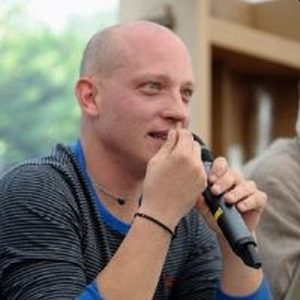
Michele Rumiz is director of the Slow Food Travel programma at Slow Food International.
London School of Economics (LSE) graduated Michele Rumiz has relevant experience in the development of value chains in the agri-food sector, with a specific focus on food, tourism, and sustainable rural development.
Slow Food is a global network of communities, founded in 1989 to prevent the disappearance of local food cultures and traditions, counteract the rise of fast life and combat people’s dwindling interest in the food they eat, where it comes from and how our food choices affect the world around us.
[Posted 20 September 2020]
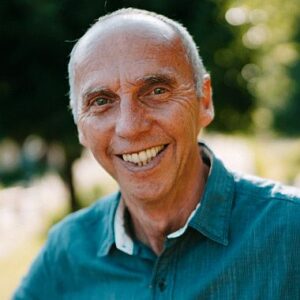
Eckart Mandler is the founder of Slow Tourism Projektmanagement GmbH and project manager of Slow Food projects in Carinthia. This is his story:
“My name is Eckart Mandler, 63 years, living in Carinthia.
I grew up in a small mountain village in Carinthia, Austria, and from birth on I have been very connected to nature. My parents ran a small farm and a small guesthouse, where I worked as a child.
From 1990 – 2010 I built and managed the first nature and herbal hotel with 50 beds in Austria according to ecological principles. At the same time I developed my home village Irschen im Drautal into the first herbal village in Austria. The aim was to better exploit the potential of a small, remote mountain village in the southern Alpine region and to build on the strengths of the landscape and the people of the village. The knowledge about herbs, the natural occurrence of wild and garden herbs as well as the desire to pass on the experiences of the older generation to the young people in the Dorf lives on until today.
My personal lifestyle and my professional activities are closely connected with nature, because I, as a human being, am also part of nature. In my work as a tourism consultant and project developer, I have therefore been involved for more than 40 years with the topics of hiking and nature tourism, slow tourism and the connection of food and food with the natural resources of regions and villages.
This was also the reason why I was commissioned by the Provincial Tourism Organization and the first Slow Food Travel destination in Carinthia to develop a new project for Slow Food in Carinthia. Since 2015 I have been working as Project Manager for Slow Food projects in Carinthia.
Slow Food Travel was developed in close collaboration with Slow Food International and its partners in Kärnten and has since become a model for linking agriculture, tourism and the regional food trade.
After an excursion to Slow Food in Bra, Italy, in 2017, the idea of the Slow Food Villages project was born. The project has now been successfully implemented in Carinthia for three years, bringing the philosophy and activities of Slow Food to the villages of Carinthia.”
[Posted 20 September 2020]
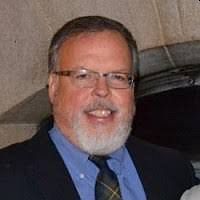
Fergus MacLaren is a sustainable tourism and cultural heritage resources management specialist focusing on community development and the conservation and use of built, natural and protected areas.
He is experienced in a broad range of Canadian and international tourism resource management and community development aspects including cultural and historic site destination management and marketing, site branding, training, risk and gap analyses, environmental scans, performance indicators development, site research and needs assessment, communications plans, multi-stakeholder evaluation and participation, program design and evaluation, large group presentations and facilitation.
He also serves in an Expert capacity for UNESCO, UNWTO, the Organization of World Heritage Cities (OWHC), the International Council on Monuments and Sites (ICOMOS), the World Monuments Fund (WMF), and the Heritage and Cultural Society for Africa (HACSA).
[Posted 20 September 2020]
APPROACH
The LAB meetings:
Took place live via video conferencing service Zoom, lasted one and a half hours and consisted of two or three presentations (in English) and, of course, time for discussion.
Were open to presenters who were actively engaged in:
– research related to Slow and thought their research results or ongoing research project would benefit from feedback from other researchers or professionals;
– applying the Slow philosophy in their region, city, company or organisation.
Were open to all who wanted to:
– explore concepts, challenges and opportunities of Slow Tourism, Slow Travel, Slow Food Travel, Slow Adventure, Slow Experience, Slow Art, Slow Retail, Slow Journalism, Cittaslow and other Slow Destinations;
– learn more about how to preserve natural and cultural heritage thanks to and despite tourism.
15 September 2021
Theme: New Approaches to Evaluating and Promoting Slow
Speakers:
Jeong Hyun Kim
“Journey to Slow City Tourism Evaluation Index (SCTEI)“
Michele Rumiz
“Latest developments at Slow Food Int.”
Hosts:
Karin Elgin-Nijhuis
Burçin Kalabay Hatipoğlu

Jeong Hyun Kim (PhD) is a lecturer at the Department of Global Hotel and Tourism, Kyung Hee University, South Korea, where she teaches gastronomic tourism as well as sustainable tourism.
Jeong has a PhD degree in hotel and tourism management from the Hong Kong Polytechnic University. Her thesis was about the development of slow city tourism evaluation index.
Prior to studying in Hong Kong, she earned her master’s degree in food and nutrition from Ewha Womans University, South Korea, where she did her research about perceptions of comfort food.
Her current research interest examines slow tourism, sustainable tourism, and smart tourism.
[Posted 30 August 2021]

Michele Rumiz is director of the Slow Food Travel programma at Slow Food International.
London School of Economics (LSE) graduated Michele Rumiz has relevant experience in the development of value chains in the agri-food sector, with a specific focus on food, tourism, and sustainable rural development.
Slow Food is a global network of communities, founded in 1989 to prevent the disappearance of local food cultures and traditions, counteract the rise of fast life and combat people’s dwindling interest in the food they eat, where it comes from and how our food choices affect the world around us.
[Posted 20 September 2020]
7 April 2021
Theme: Earth Markets, Sustainability and Slow Tourism
Speakers:
Burçin Kalabay Hatipoğlu & Kıvanç İnelmen
“Sustainable consumption and production patterns fuelled by Slow Food’s Earth Markets”
Astride Rozite & Guntars Rozitis
“Straupe Earth Market, Latvia”
Walter Orsi
“Earth Market of Cairo Montenotte and the
Enterprise Network “Buone Terre” in Liguria, Italy”
Elena Sandrone
Coordinator Earth Markets project at Slow Food International
Host:
Karin Elgin-Nijhuis
This LAB meeting was organised in collaboration with Slow Food International and was part of the Terra Madre Salone del Gusto 2020-2021 programme. Terra Madre is the most important international Slow Food event dedicated to good, clean and fair food.
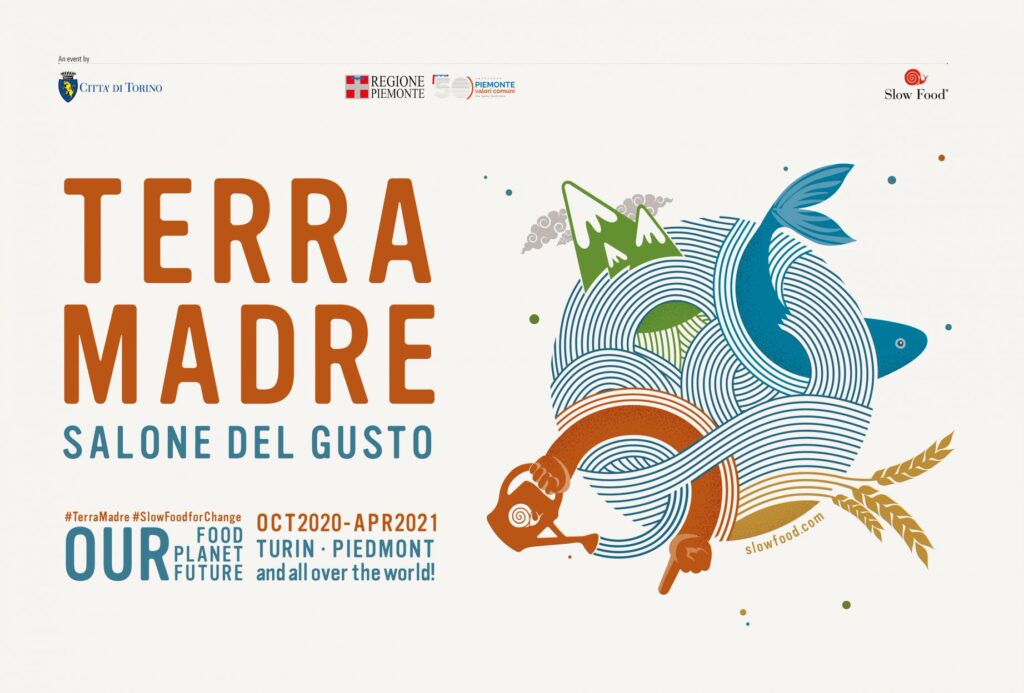
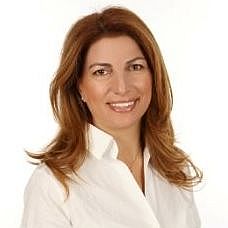
Burçin Kalabay Hatipoğlu has worked as full-time faculty at the Tourism Administration Department of Boğazici University in Istanbul, Turkey, since 2006.
In the last ten years, Dr Hatipoğlu has been involved in several sustainable development projects, consulted industry organizations, and published various articles on sustainable tourism, circular economy, and education for sustainability.
In 2014, she managed an EU-funded project on vocational food education development. Since then, Dr Hatipoğlu has been studying the Cittaslow Network and Slow Food projects with her students. She was a delegate at the Terra Madre Salon Del Gusto, Torino event in 2018.
She is currently a visiting fellow at the School of Business in Canberra and the Industrial Relations Research Group (IRRG) of UNSW (University of New South Wales) in Sydney, Australia.
[Posted 7 February 2021]
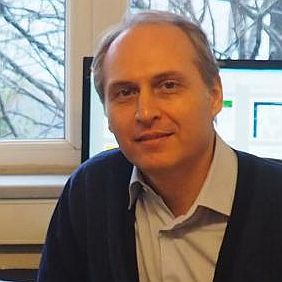
Kıvanç İnelmen (PhD) is a professor of management and strategy at Boğaziçi University, Department of Tourism Administration, in Istanbul, Turkey.
His current recent research spans the areas of trust in and around organisations; demographic diversity; employee voice; intention to stay; sustainability of medical tourism organisations; sustainable consumption and production management.
[Posted 3 February 2021]
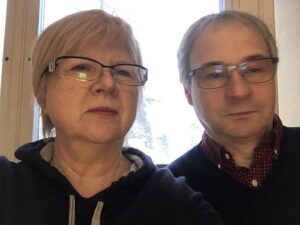
Astride Rozite & Guntars Rozitis live in the small village of Straupe in Latvia. Straupe is the smallest town in the Hanseatic League, where an Earth Market has taken place since 2008.
Astride is the inspirer and organiser of the Straupe Earth Market and head of the NGO Slow Food Straupe NGO’s steering committee. Guntars is also a Slow Food Straupe member and a voluntary (or not so voluntary) supporter of the EarthMarket activities.
[Posted 11 March 2021]
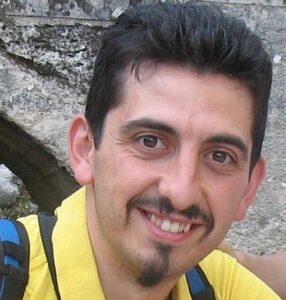
Walter Orsi, an agronomist and farmer, deals with local production, consultancy and planning in the fields of agriculture, forestry and territorial promotion. Since 2008 he has been actively involved in the Cairo Montenotte Earth Market in Liguria, Italy, of which he has been the coordinator since 2012.
[Posted 10 March 2021]
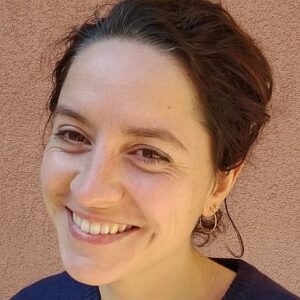
Elena Sandrone has been a gastronome since 2013, after completing her studies at the University of Gastronomic Sciences in Pollenzo (Italy).
After a short career as a private chef, she started working for Slow Food Italy in 2015, dealing with several projects in the field of collective restoration and health.
In 2016, she set up a Master on sustainable food supply chains at the University of Turin. Since 2018, she coordinates the Slow Food Earth Markets project.
[Posted 24 March 2021]
9 December 2020
Theme: Slow Destinations
Speakers include:
Joerie Minses & Michelle Hillebrand
“Cittaslow in Alphen-Chaam, The Netherlands: a slow destination”
Véronique Hermanjat
“Morges Région: Challenges to become the first Slow tourism destination of Switzerland”
Hosts:
Karin Elgin-Nijhuis
Burçin Kalabay Hatipoğlu
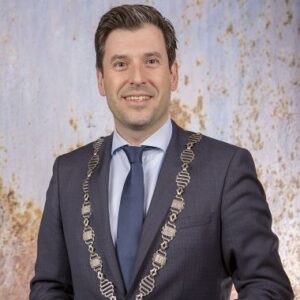
Joerie Minses (40) has been mayor of Alphen-Chaam, the Netherlands, since 2014. The municipality of Alphen-Chaam has been Cittaslow certified for over 10 years.
Cittaslow is the international quality mark and association for small municipalities (up to 50,000 inhabitants) that focuses on people in a sustainable environment.
Cittaslow strives for a high-quality living environment with a strong social community that is supported by the municipality. This is reflected in values, such as authenticity, hospitality, respect, time and attention for each other. Nature and landscape, identity and cultural history are also important elements.
Continuous and consistent work based on this philosophy distinguishes a Cittaslow municipality such as Alphen-Chaam from other municipalities.
The international association of municipalities Cittaslow originated in the Slow Food movement and was founded in Orvieto, Italy, in October 1999.
[Posted 9 November 2020]
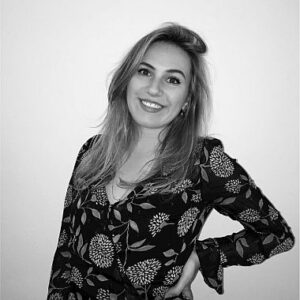
Michelle Hillebrand is a member of staff of the municipality of Alphen-Chaam (ABG municipalities) in the Netherlands and responsible for tourism and leisure.
Michelle studied tourism management at NHTV Breda University of Applied Sciences and specialised in destination marketing. For her thesis, she researched the propagation of regional identity by tourism-recreational entrepreneurs at the HZ University of Applied Sciences.
Michelle is working daily on the execution and implementation of Cittaslow in Alphen-Chaam, especially in the field of leisure economy, recreation and tourism.
[Posted 9 November 2020]
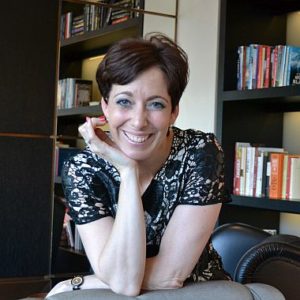
Véronique Hermanjat is a tourism delegate for Morges Region in Switzerland. Since 2018 she has been fulfilling the role of project manager “Slow Destination Morges Region” programme for ARCAM-Association de la région Cossonay-Aubonne-Morges.
Earlier/other roles include CEO of Passion for People (since 2008); general manager at IST-International School of Tourism Lausanne (2008-2018); professor at EHL-Ecole hôtelière de Lausanne (2007-2009) teaching International Tourism Management; general manager of the Nyon Tourism Board (1999-2008); public relations adviser at Gretz Communication Burgdorf; event manager at the Convention Centre Montreux.
[Posted 9 November 2020]
2 September 2020
Theme: Slow Adventure
Speakers:
Sara Mair Bellshaw:
“Critical Success Factors for the Slow Adventure Organisation and Businesses”
Celia Bull:
“Critical Success Factors for Selkie Explorers and Slow Adventure”
Hosts:
Burçin Kalabay Hatipoğlu
Karin Elgin-Nijhuis
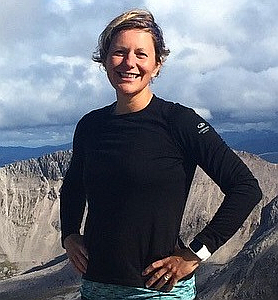
Sara Mair Bellshaw is the Senior Innovation Manager at the University of the Highlands and Islands’ Centre for Recreation and Tourism Research in Scotland and focuses mainly on applied practical research projects that involve tourism product development and tourism marketing.
Sara coordinated Slow Adventure in Northern Territories (SAINT), a project co-financed by the Northern Periphery and Arctic Programme, which drew together a range of partners in Ireland, Finland, Norway, Iceland, Northern Ireland and Sweden.
Sara has focused on turning the slow adventure concept into a marketable product by working with businesses to cluster, collaborate, create and promote new Slow Adventure® experiences, and is working with the industry, including the European Travel Commission and their NTO members, to develop the movement further.
Sara has a background in economic development, destination and tourism marketing, sustainable communities and project management, and continues to advocate for slow, strategic and responsible tourism throughout her work.
[Posted 5 August 2020]
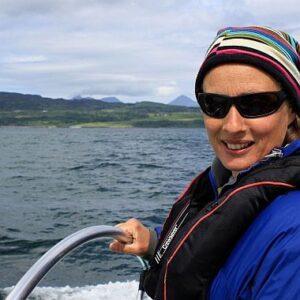
Celia Bull is an experienced yachtswoman and climber who began sailing in the late 90s when she joined a 10-metre yacht in Greenland.
Entranced by the wildness of the high latitudes, she crewed on a charter boat, working out of the Falkland Islands, and visited South Georgia and Antarctica during film work with the BBC’s Blue Planet team.
Following this unique, edifying experience, she bought her own boat, Ada II, and returned to the South Atlantic. For five years, Celia sailed with expeditions and charters in Patagonia and South Georgia and led an all-female trip to Antarctica. Celia lived and sailed with her baby son Dylan on Ada II before settling down for a few years in Chile.
When Dylan was three, she found and bought Selkie in Croatia. Selkie became their home, and they worked their way back to the UK and up to the Isle of Eigg, where they now live and run a croft as well as Selkie Explorers.
[Posted 5 August 2020]
